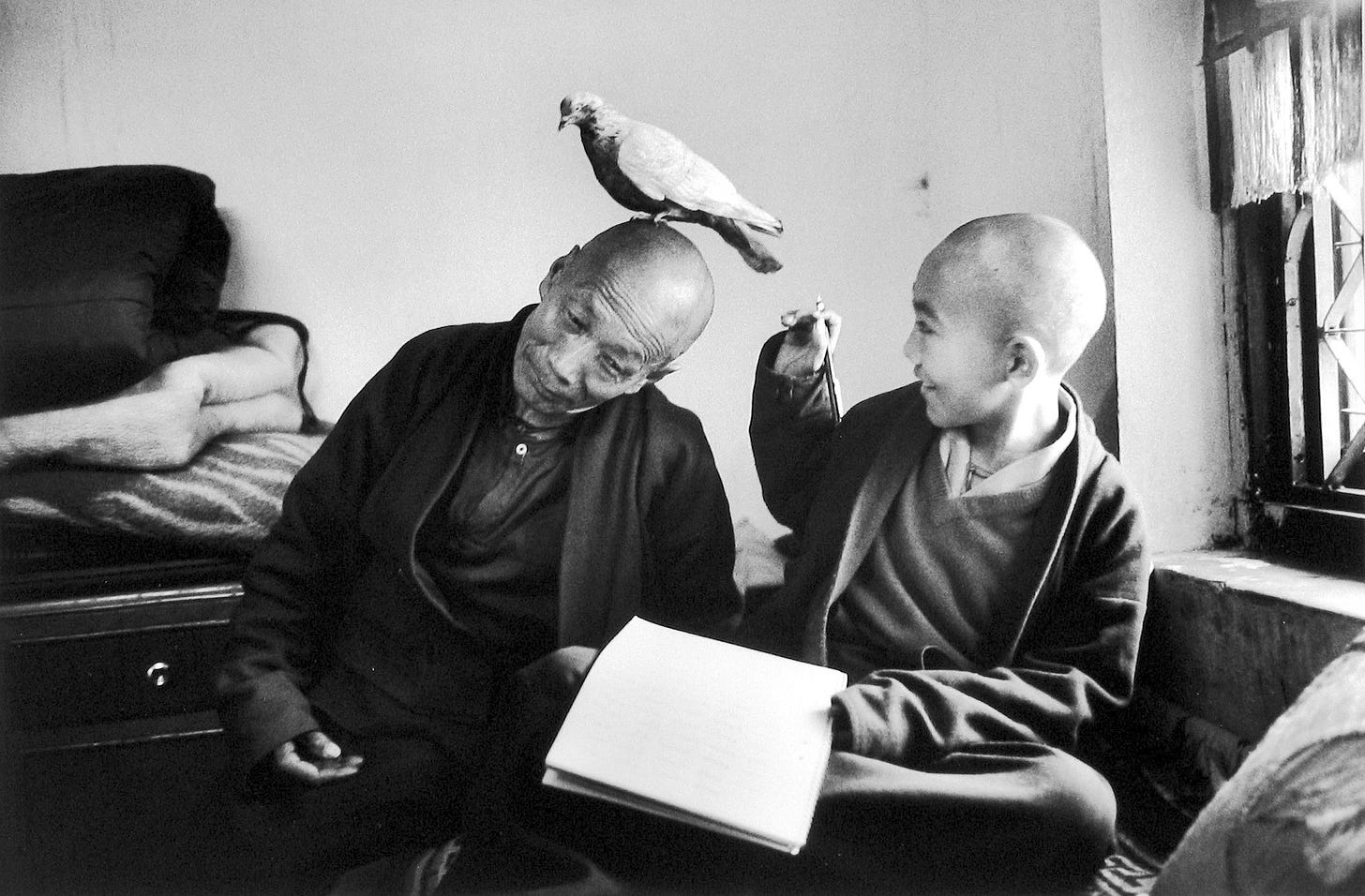"Since you cannot do good for all, you are to pay special attention to those who, by the accidents of time, or place, or circumstance, are brought into closer connection with you."
St. Augustine
Much of the frustration we feel in our relationships comes not from others, but from the silent expectations we bring with us. We enter contact with people seeking something - approval, support, kindness, recognition - and when these needs aren’t met, we walk away feeling disappointed and upset.
It's natural to want these things, but when they become the silent terms of our interactions, they introduce an invisible pressure. What if we changed our approach? What if instead of looking to get, we aimed only to give? What if we offered love and understanding without demanding it in return?
When we show up with the intention of being a friend - rather than having one - we free ourselves from the weight of expectation and find ourselves more available. And in that openness, something interesting happens: we start to feel happier, more connected, and strangely fulfilled.
The ideas below encourage you to ground your awareness in generosity. They suggest that fellowship isn’t build on grand displays, but on small, intentional choices, in moments of deliberate warmth and conscious compassion. Friendliness, in its simplest form, is just paying attention with kindness.
Being a Friend
The Honeycomb
Watashiato 私跡
In Conversation
The Hand of God
A Spiritual Game
The Honeycomb
A wise person once said:
"There are three kinds of givers in the world - the flint, the sponge and the honeycomb...
To get anything out of a flint, you must hammer it, and then you get only sparks. To get anything out of a sponge you must squeeze it, and the more you squeeze the sponge, the more you will get. But the honeycomb overflows with its own sweetness.
Some people are stingy and hard; they give nothing away if they can help it. Others are good natured; they yield to pressure, and the more they are pressed, the more readily they give. A few delight in giving without being asked at all.”
Who in the world doesn't love a cheerful giver?
Watashiato
Watashiato is a Japanese word that reflects a curiosity about the effect you've had on the lives of those around you. It's made up of the characters 私 (watashi), meaning "I", and 足跡 (ashiato), meaning "footprint".
Every day, in the smallest of moments, we leave traces of ourselves behind. Passing a stranger on the street, brushing shoulders with someone as they exit a shop, sharing a brief glance as we collect the mail…
These encounters, seemingly insignificant, carry with them a subtle exchange of energy. If I can feel what I pick up from others - their mood, their presence - surely they feel mine too. What, then, do I want to leave in my wake? What do I want this trail of mine to consist of?
It may just be that this constant, quiet contribution to the world is the most important “gift” we have to offer. And if that’s true, I want my presence to be - in the words of the poet Rumi - “a lamp, a lifeboat or a ladder”: I want to gladden, heal and uplift the hearts of those around me.1
Tulku with His Tutor, Shechen Monastery, Nepal, Martine Franck 1996
In Conversation
On the Acropolis, Tod Papageorge 1983
The Old Way: "He’s impossible to deal with." "Why is meeting with her so draining?" “He’s such a drag.” “She’s so demanding.”
The New Way: “What part of me is making this more difficult than it needs to be? How am I layering this conversation with my own resistance?”
The energy we bring shapes the space between us, and we have the power to change it. Whoever is with you at the moment is part of your way home.
The Hand of God
One of my simplest pleasures is hugging my friends and family. I see each opportunity to do so as a small reminder:
My body isn't meant to be a battle ground or something to be afraid of. Regardless of what performance coaches and wellness enthusiasts have to tell me, I can use it to make other people happy.
As I once heard it said: “Putting a hand on someone’s shoulder is nothing less than the hand of god, extended.”
A Spiritual Game
Why do we resist loving certain people? More often than not, it’s because we’ve judged them. We see their flaws, and our ego whispers that loving them means accepting a reality we find unappealing.
But what the ego doesn’t understand is this: love transforms what it touches. It doesn’t turn away from (or ignore) what’s unpleasant; it sees more and enfolds more - it causes its object to bloom.
The next time you're faced with someone you dislike - whether in person or in thought - treat it as a little game. It begins the moment you notice your mind fixating on their faults and broadcasting its irritations.
You earn a point each time you successfully soften your stance - whenever you release criticism, quiet your mind, and make space for understanding (this person, just like you, simply wants to be seen as worthy).
And the prize? The subtle, but significant shift in how you feel - the attitudinal healing and the lightness that follows.2
MEME CX & Night, Antony Gormley 2020
Every bit counts. You may not witness the full effect of what you've given, but if the other person feels accepted or reassured, your effort has meaning. Change unfolds gradually, and each step forward is part of a greater whole.
If you’re anything like me, the opportunities to play this game will surround you. That’s a good thing. There’s a lot of old programming to unlearn, and as the Lt. Aldo Raine says, “You know how you get to Carnegie Hall, don’t ya? Practice.”





